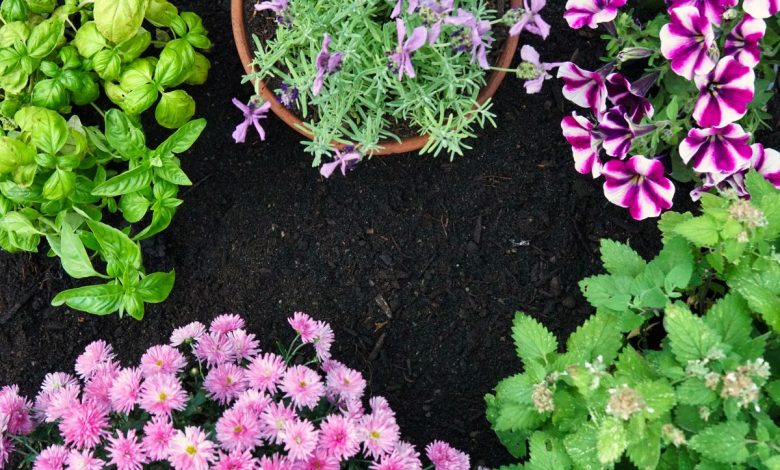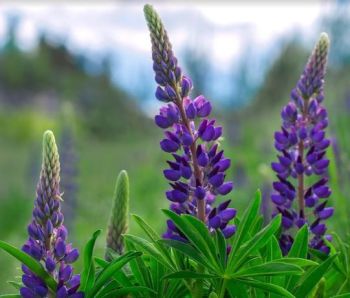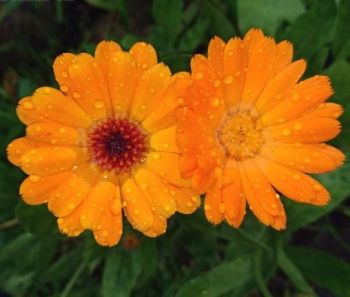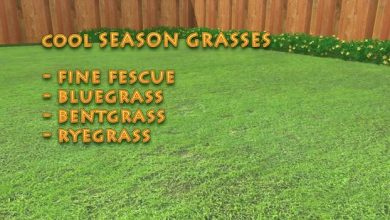Protective Plants against Pests in the Garden: Anti-Pest Plants

Today I write to give you proposals for some pest-protective plants that you could grow to avoid fungal problems, unwanted insects…

Throughout the article I will be proposing different pests that we could have in our garden and then I will give you some proposals. As I tell you many times, we want your participation so that AGROHUERTO.COM is a great community in which we can enrich ourselves from the advice we all give.
What are protective plants?
When I speak of this term, I refer mostly to aromatic plants that will stop the increase of any type of pest in an ecological way in a good percentage. The location in our garden of these «guardians» should be surrounding our crop. That is, if we have a terrace, put the aromatics at the ends of the terrace.
In this way, the range of action is greater and we optimize the space to the maximum. On the other hand, we can use these plants later for culinary use or also to give a special aroma to our space.
pest control plants
In the following paragraphs I am going to expose different problems that we can have in our garden and the possible solutions. We are going to see repellent plants for aphids, repellent plants for whiteflies, plants against nematodes and mosquito repellent plants.
Plants against aphid pests
If we have aphids in our garden, a possible preventive solution would be to plant honeysuckle (Lonicera caprifolium), lupine (Lupinus polyphyllus), foxglove (Digitalis purpurea), mint (Mentha spicata) or nettle (Urtica dioica) are some of the plants that we can use as repellents. This is because the smell they secrete repels the aphid.

In addition to enclosing the crop we have, we could use these protective plants as an essential part for manure or ecological insecticides. These applications are very common and recommended in the cultivation of rose bushes, since it is an ornamental plan that is very crushed by aphids and in this way we can solve it and enjoy the color and smell of the rose bush (Rosa canina).
Whitefly repellent plants
We have already told you about this pest in our article Fight whitefly and that it is a whitefly that loves tomato, cabbage and cucurbits such as cucumber, pumpkin or cucumber. To avoid this, we can make a good association of crops by planting aromatic plants such as calendula (Calendula officinalis), Chinese carnations or tagetes (Tagete erecta), tobacco (Nicotiana glauca) or basil (Ocimum Basilicum).
Also remind you that the whitefly is a polyphagous pest, that is; that it is capable of attacking any crop, therefore; great care. Perhaps by making a good garden design you can avoid problems that are later more difficult to solve.
plants against nematodes
Nematodes are microscopic worms that live underground and obviously affect; to the roots of our plants. For these reasons, it is a little-known pest that can greatly confuse us due to its lack of knowledge. Some of your symptoms could be
- The leaves take on a pale green or yellow color that wilts when the weather is hot. Sometimes we can confuse it with a lack of nutrients or water but no…
- Stunted plants, with little development, discolored. This increases their susceptibility to cold, fungi and opportunistic bacteria. Affected plants can die by the direct action of the Nematode or by parasites of weakness.
- Progressive weakening of the plant, wilting without explanation and without being able to observe anything.
- They are usually manifested by stands or crop lines.
First of all, we have to know that all soils have nematodes and to know the population level of these little worms we must carry out a study in a laboratory.
To cure ourselves in health, we can plant tagetes (Tagete erecta) and/or marigolds (Calendula officinalis)

mosquito repellent plants
One of the advantages that the garden can give us is having a space where you can enjoy a good snack with friends or just with the company that nature can give you. But in summer, we can have some very heavy «companions» that can also affect our crop. These are the mosquitoes.
To eliminate this presence, we can use basil (Ocimum Basilicum), citronella (Cymbopogon citratus) or jasmine (Jasminum polyanthum). This advice can help you to use it on your balcony or roof terrace.
References
- Veen G, Schmidt C, Witte L, Wray V, Czygan F. Lupine alkaloids from Lupinus polyphyllus. Phytochemistry. 31(12), 4343-4345.
- Lawal, OA, Ogundajo, AL, Avoseh, NO, Ogunwande, IA (2017). Chapter 18 -Cymbopogon citratus. Editor(s): Victor Kuete. Medicinal Spices and Vegetables from Africa. Academic Press. 397-423.
- Schmidt MH, Lauer A, Purtauf T, Thies C, Schaefer M, Tscharntke T (2003).Relative importance of predators and parasitoids for cereal aphid control. Proceedings of the Royal Society B: Biological Sciences, 270, 1905–1909.
Good agrohuertistas, I await your advice and in future articles of Agrohuerto.com
See you in the orchard!


![Photo of How to germinate Palm Tree Seeds: [Time, Steps and Planting]](https://www.complete-gardening.com/wp-content/uploads/2022/08/how-to-germinate-palm-tree-seeds-time-steps-and-planting-390x220.jpg)
![Photo of Kiwi Pests and Diseases: [Detection, Causes and Solutions]](https://www.complete-gardening.com/wp-content/uploads/2021/06/kiwi_1603533528-390x220.jpg)
